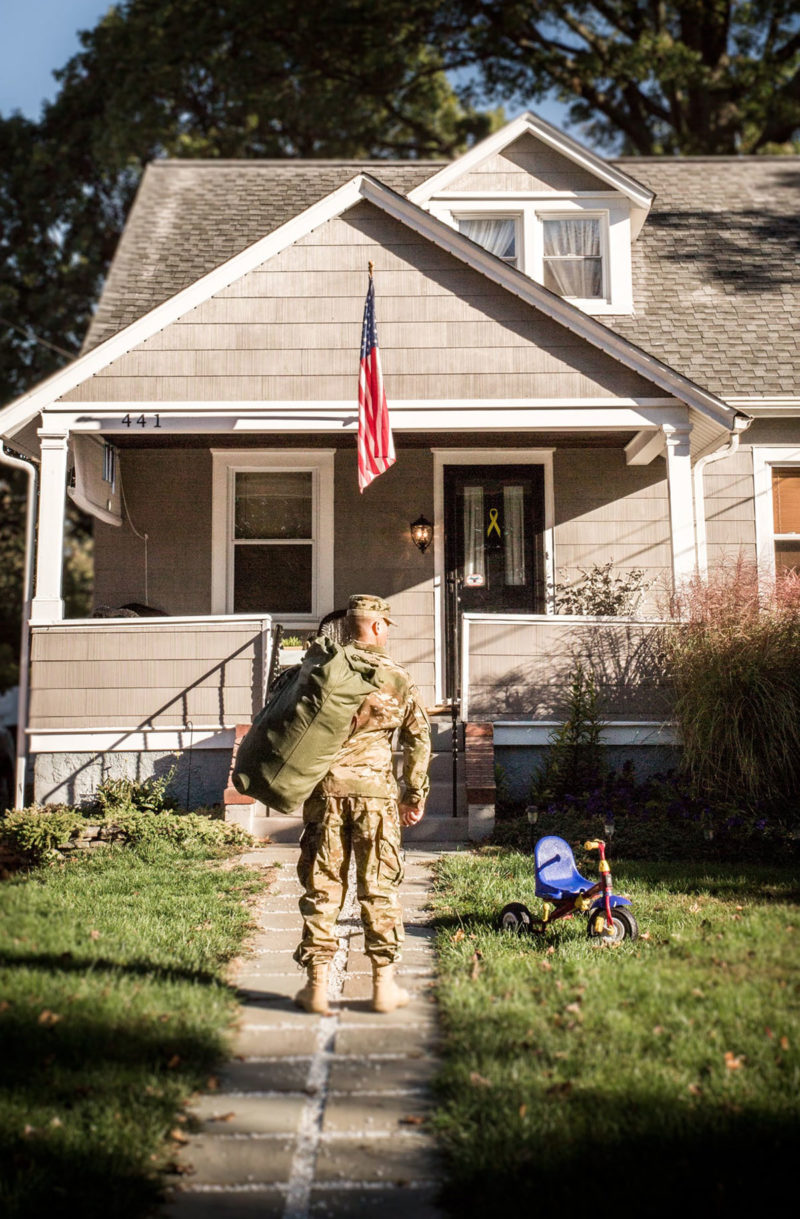Time for Grateful Celebration
Week Summary
How can you incorporate joy and gratitude into reintegration to celebrate progress?
Reestablishing family norms after a deployment can take awhile, yet your husband’s return is worth celebrating! We see the same emotion in Ezra. Although home, the Jewish people faced months of work to fully reestablish the temple. Even so, they stopped and celebrated the foundation being laid before they went further. Joy and gratitude are elements of true celebration, and celebrating progress strengthens your family as you move forward together.
About This Journey
Reintegration is hard: it messes with rhythms and feels uncomfortable. “Reunited and Resilient” tells the story of how God stirred a king to change the trajectory of a nation. Follow along as God shows us how He can also stir your family’s hearts to reach for restoration as you journey toward reintegration following deployment.
This Week's Readings
God Stirs a Heart
Read
In the first year of Cyrus king of Persia, that the word of the Lord by the mouth of Jeremiah might be fulfilled, the Lord stirred up the spirit of Cyrus king of Persia, so that he made a proclamation throughout all his kingdom and also put it in writing:
“Thus says Cyrus king of Persia: The Lord, the God of heaven, has given me all the kingdoms of the earth, and he has charged me to build him a house at Jerusalem, which is in Judah. Whoever is among you of all his people, may his God be with him, and let him go up to Jerusalem, which is in Judah, and rebuild the house of the Lord, the God of Israel— he is the God who is in Jerusalem. And let each survivor, in whatever place he sojourns, be assisted by the men of his place with silver and gold, with goods and with beasts, besides freewill offerings for the house of God that is in Jerusalem.”
Then rose up the heads of the fathers’ houses of Judah and Benjamin, and the priests and the Levites, everyone whose spirit God had stirred to go up to rebuild the house of the Lord that is in Jerusalem.
-Ezra 1:1-5Reflect
I am a coffee snob. Some of you may roll your eyes, but others will recognize a kindred spirit. Maybe you can relate to some of my life mottos: “No coffee, no workee.” Or, “I only need coffee on days ending with “y.” And, “I would stop drinking coffee, but I am not a quitter.” Each morning, I stir cream in my coffee—the real stuff. Do not give me a chemical facsimile. I will cut corners elsewhere, but for coffee I want cream. It is part of the morning ritual that awakens my senses and rouses me toward productivity.
Ezra 1:1 refers to God stirring a king to make a decision that would benefit God’s people. The Hebrew word translated as stir is to rouse, awake, or incite. God caused King Cyrus of Persia to fulfill a prophecy given by the prophet Jeremiah years earlier. In Ezra 1:5, God stirred the hearts of families and priests to return to Jerusalem to rebuild the city. Yes, God awakened the senses of a king and a group of exiles to move toward rebuilding a nation.
Those who sensed God’s stirring could have been content to have an emotional moment and go back to life as usual. However, just as stirring cream in my coffee each morning changes the color, texture, and taste, the stirring of the exiles brought change to their lives. The stirring moved them to find a new normal after being away from home for a very long time.
A major theme of the books of Ezra and Nehemiah is that God intervenes in our affairs by stirring hearts to action. He roused hope in the hearts of people long separated from their land, their temple, and their public worship. God stirred their hearts to work for the change and restoration they desired.
We may not understand wars and why they happen, but do not forget this: God is concerned about you and your military family. He can stir your family’s hearts to reach for restoration as you journey toward reintegration following deployment.
Respond
How has God stirred you to prepare for reintegration? What comfort do you find in the fact that God stirred a king and influenced him to change the trajectory of a nation?
Prayer
Father, thank you for stirring hearts and for your intervention in people’s hearts and lives. Help my family as we readjust to being together again. May we honor you in the process. Amen.
Recipients of God’s Care
Read
And all who were about them aided them with vessels of silver, with gold, with goods, with beasts, and with costly wares, besides all that was freely offered.
-Ezra 1:6Reflect
Last summer I had the privilege to meet and spend significant time with Brittany. Brittany, a Marine wife with three young and energetic children, draws you in with her infectious smile and positive disposition. She and her children received a scholarship for military families to attend a weeklong camp in the beautiful mountains of Colorado. Throughout the week, Brittany would stop and say, “I cannot believe I am here.” She felt overwhelmed with the generosity of a Marine veterans’ foundation that funded her entire trip. This group was willing to invest in a military family and pave the way for their reintegration following deployment.
Over the years, God has motivated many groups and organizations to action in order to help families in the process of redeployment. Oh, they may not recognize or acknowledge that it is God, but he is the originator of such good gifts. God is concerned about taking care of you. Just as God used people to aid in the restoration of the temple in the day of Ezra, he uses people today to aid in restoration of families.
The writer of Ezra emphasized the holy nature of the rebuilding. Neither a human plan nor project, the return and rebuilding was a work of God. God moved on the hearts of Gentile people to give extravagant gifts and offerings toward the return of the Jews to their homeland. Such unexpected generosity could only be the result of God’s intervention.
God can also awaken a desire for the restoration of relationships following such an event as military deployment. Brittany would tell you she was surprised and amazed to be the recipient of the generosity bestowed upon her. The gift came from an unlikely source of blessing, but such is often the case. God provides for those whom he loves—frequently in unexpected ways.
Respond
How has God provided for you in unexpected ways during deployment or reintegration? How have you been motivated to help others through deployment or reintegration?
Prayer
Lord, thank you for moving the hearts of people to do good in this world. Thank you for the times I have been a recipient of your care through the generosity of others. Challenge my heart toward love and good deeds today. Amen.
Family Identity
Read
Now these were the people of the province who came up out of the captivity of those exiles whom Nebuchadnezzar the king of Babylon had carried captive to Babylonia. They returned to Jerusalem and Judah, each to his own town.
-Ezra 2:1Reflect
Upstairs in my file cabinet sits a folder with several lists of names. One list holds the genealogy of my family and another list holds the genealogy of my husband’s family. On the surface, you read a dry record of names. Most of the names mean very little to my husband and me, but they are representative of our family history. Our two narratives blend to become a story even more meaningful for our children. Within the list of names lies a secret to family resilience.
In a New York Times article entitled “The Stories that Bind Us,” author Bruce Feiler asked, “What is the secret sauce that holds a family together? What are the ingredients that make some families effective, resilient, and happy?” Based on research Feiler concluded, “The single most important thing you can do for your family may be the simplest of all: develop a strong family narrative.”
The research reported by Feiler confirmed that the more children know about their family’s history, the better able they are to deal with challenging situations. This confidence relates to a sense of belonging—of being part of a larger family. The research concludes that the sharing of stories about a family’s positive moments, as well as, the ability to bounce back from difficult ones, increases the odds of a family thriving for generations to come.
On the surface, Chapter 2 of Ezra is a boring list of people long dead, but it represents so much more. The names listed are a record of God’s faithfulness to his people. Hundreds of years of war, famine and captivity could not destroy the identity of God’s people. God has preserved, is preserving, and will preserve his people.
What are the stories of your family—both nuclear and extended—that you are telling? No matter the size of your family, you have a narrative that creates your family identity and will help carry you through difficult times.
Respond
What are ways you can preserve your family history? How have family stories helped you endure challenging times?
Prayer
Father, thank you for my family. Thank you for stories of faith, struggle, challenge, hope, and victory from which I learn in negative and positive ways. Help our family to be strong and bound together as we write the next chapter in our family story. Amen.
First, We Worship!
Read
When the seventh month came, and the children of Israel were in the towns, the people gathered as one man to Jerusalem. Then arose Jeshua the son of Jozadak, with his fellow priests, and Zerubbabel the son of Shealtiel with his kinsmen, and they built the altar of the God of Israel, to offer burnt offerings on it, as it is written in the Law of Moses the man of God. They set the altar in its place, for fear was on them because of the peoples of the lands, and they offered burnt offerings on it to the Lord, burnt offerings morning and evening.
-Ezra 3:1-3Reflect
My vision blurred as I drove home from chapel on Sunday mornings during my husband’s first deployment. The idea of eating lunch alone afterwards brought a flow of tears. Any other day of the week I was fine, but not on Sundays. I started to find excuses not to go to church in order to avoid the sad ride home following the benediction. Over time, I reached out to friends, and they reached out to me. Church no longer represented the loneliest day of the week, but instead became a place I corporately celebrated God’s faithfulness.
Interesting enough, when my husband redeployed, church was one of the first places I wanted to go. I had sat through enough reintegration briefings to know we needed all the help we could get in order to reestablish our relationship.
I reminisced about that deployment as I read Ezra 3. Did you notice the first thing the Israelites did when they returned to Jerusalem was to build an altar to worship God? Such action speaks volumes about the foundation of their faith and their desire to reestablish worship as a priority for their nation.
The priests reconstructed the altar on the same foundation as the altar of Solomon’s temple. Do not miss the significance of this act. The rebuilding of the altar was the first step in setting apart the Jewish people as a nation once again.
Scripture indicates that the people were fearful of the reconstruction because of opposition from the inhabitants of the land. But the altar represented God’s protection and presence, which gave them more reason to be resilient in their effort to reconstruct.
A 2011 study focused on challenges for military families during reintegration. Of crucial importance was a guiding belief system enabling a family to make sense of and find meaning in a difficult situation.
Friend, keep worship a priority throughout the deployment and redeployment process. Consider church or military chapel to be one of the first places you go as a family. You might notify your pastor or chaplain about your husband’s return and request recognition of the homecoming. What better way to mark a reunion than through worship in God’s house?
Respond
Why might it be meaningful or significant for your church or chapel to recognize your reunion? Why do you think a “guiding belief system” is important to military families?
Prayer
Father, help me make worship of you a priority today and every day. May I continually offer up a sacrifice of praise to you, the fruit of my lips that acknowledge your name. Amen. (See Hebrews 13:5)
Stop and Celebrate
Read
And they sang responsively, praising and giving thanks to the Lord,
“For he is good,
for his steadfast love endures forever toward Israel.”
And all the people shouted with a great shout when they praised the Lord, because the foundation of the house of the Lord was laid.
-Ezra 3:11Reflect
Military homecomings are often a remarkable sight. Flags, banners, yellow ribbons, a military band, and families with eager expressions all combine for a celebration getting ready to happen. As I type these words, I recall the anticipation I felt as I stood in a hanger and caught sight of a plane landing in the distance. I waited with other family members as the group of soldiers deplaned, lined in formation, and marched into the hanger. I craned my neck to find my soldier among the uniformed many and rejoiced when the formation dismissed. Then it came: shrieks and shouts, hugs and kisses, tears and laughter, and a massive rush to reunite with the one I missed for so long. Let the homecoming celebration begin!
Some of the same emotion of a military homecoming celebration is reflected in the words of Ezra 3:11. The difference lies in the timeline of the celebration. This celebration took place months after their reintegration back to Jerusalem, not at the point of their return. Although they had been home for some time, the people still faced months of work to fully reestablish the temple. Even so, they stopped and celebrated a major step – the foundation being laid – before they went any further.
As the Jewish people realized the significance of their progress, they began singing the same song used at the dedication of the first temple of Solomon’s day. Ecstatic, they gave a great shout in gratitude for what God had done, was doing, and would continue to do for their nation. These people were ready to get on with God’s plan, but first they stopped to celebrate a step in the right direction.
Sisters, reestablishing family norms after a deployment can take a long time. Take a lesson from the folks in Ezra and celebrate small accomplishments—even the first step toward the goal.
Respond
What is something you could do to mark and celebrate a step in the right direction after your husband returns from deployment? What positive results can come from such a celebration?
Prayer
Father, help our family to practice celebrating small steps in the right direction. Make us aware of the moments that may seem small, but are actually great strides forward. Give us creativity as we work together to build family memories. Amen.
Resources & Info
Resources to help you and other military wives in your community.
Are you enjoying these resources?
Sign up now to save your Journey progress and your favorite Segments.
Your download is being prepared.
- Small Group Resource: Deployed 2 - Leader's Guide
- Small Group Resource: Deployed 2 - Participant's Guide



